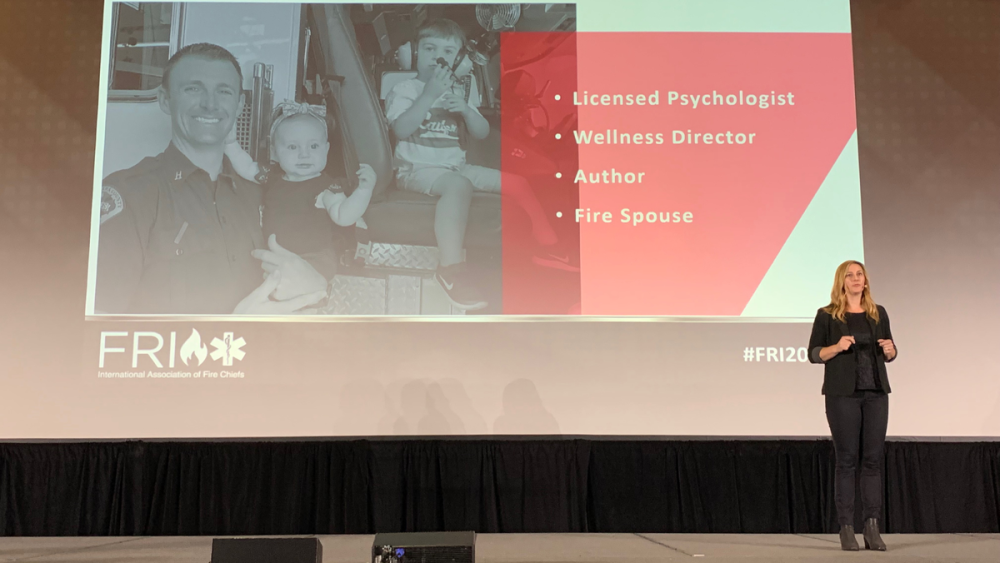Editor’s Note: This article was part of FireRescue1’s Fire-Rescue International 2022 coverage.
SAN ANTONIO, Texas — If there’s one thing Dr. Rachelle Zemlok wanted fire service leaders to take away from her keynote speech during Thursday’s general session at IAFC’s Fire-Rescue International, it was this: Firefighter mental health and retention starts at home.
Dr. Zemlok, a clinical psychologist and director of wellness at Lexipol, works with firefighter spouses to provide mental health support for the issues unique to fire families. In her practice, she often hears about the struggles firefighter spouses face when it comes to raising a family and grappling with the unexpected ways the fire service impacts their lives.
As a firefighter spouse herself, Zemlok understands the frustration of her clients, because she has felt it, too. The answer, she says, starts at the firehouse.
Read the top takeaways from Zemlok’s session and leave your thoughts in the comments.
Memorable quotes from Zemlok
- “You (fire leaders) and me (firefighter spouses)? We’re connected.”
- “Many firefighter families are completely isolated from other firefighter families and completely isolated from the department. Some spouses have no idea what goes on at the station and why it impacts the home life.”
Top takeaways
1. Why the family matters
- Many firefighters early in their careers have families with young children, which can be difficult to juggle with work schedules and overtime shifts, particularly as the recruitment and retention challenges continue.
- Millennials, with an age range of 22-40, crave a work-life balance. In the era of the Great Resignation, when recruiters are looking for quality people to fill roles, many will leave for opportunities that allow them more flexibility to be at home.
- A happy home life is a happy station life. If a firefighter is not focused on issues at home, such as a fight with a spouse about yet another overtime shift, they are able to be more mentally available and in the right mindset on duty.
2. The military has “been there, done that” when it comes to member retention.
- The Department of Defense faced a similar dilemma with service member retention due to military families not feeling supported, which ultimately led to many active duty troops leaving the service.
- In the early 2000s, the DoD invested in research to understand the challenges families were facing that was leading to troops leaving the service, and began implementing programs that supported spouses with mental health concerns, career development and child care.
3. What can fire departments do to support families?
- Listen to the concerns of spouses and what their families need. Even if there is nothing that can be changed, just giving families the opportunity to share their struggles is helpful, Zemlok said.
- Acknowledge the difficulties fire families face and that the health and well-being of firefighters start at home.
Bottom line? Families matter
Both fire leadership and fire spouses want the same thing — for the firefighter to feel supported, understood and like their mental wellness matters. When spouses are looped into what’s impacting their firefighter spouse, they can better understand and recognize the symptoms of mental distress, such as a short temper, irritability and lack of patience. When spouses feel supported by the department and that their concerns are being heard, they are more likely to support the firefighter in career longevity.
Watch Dr. Zemlok’s full presentation here:
This article, originally published in August 2022, has been updated.













